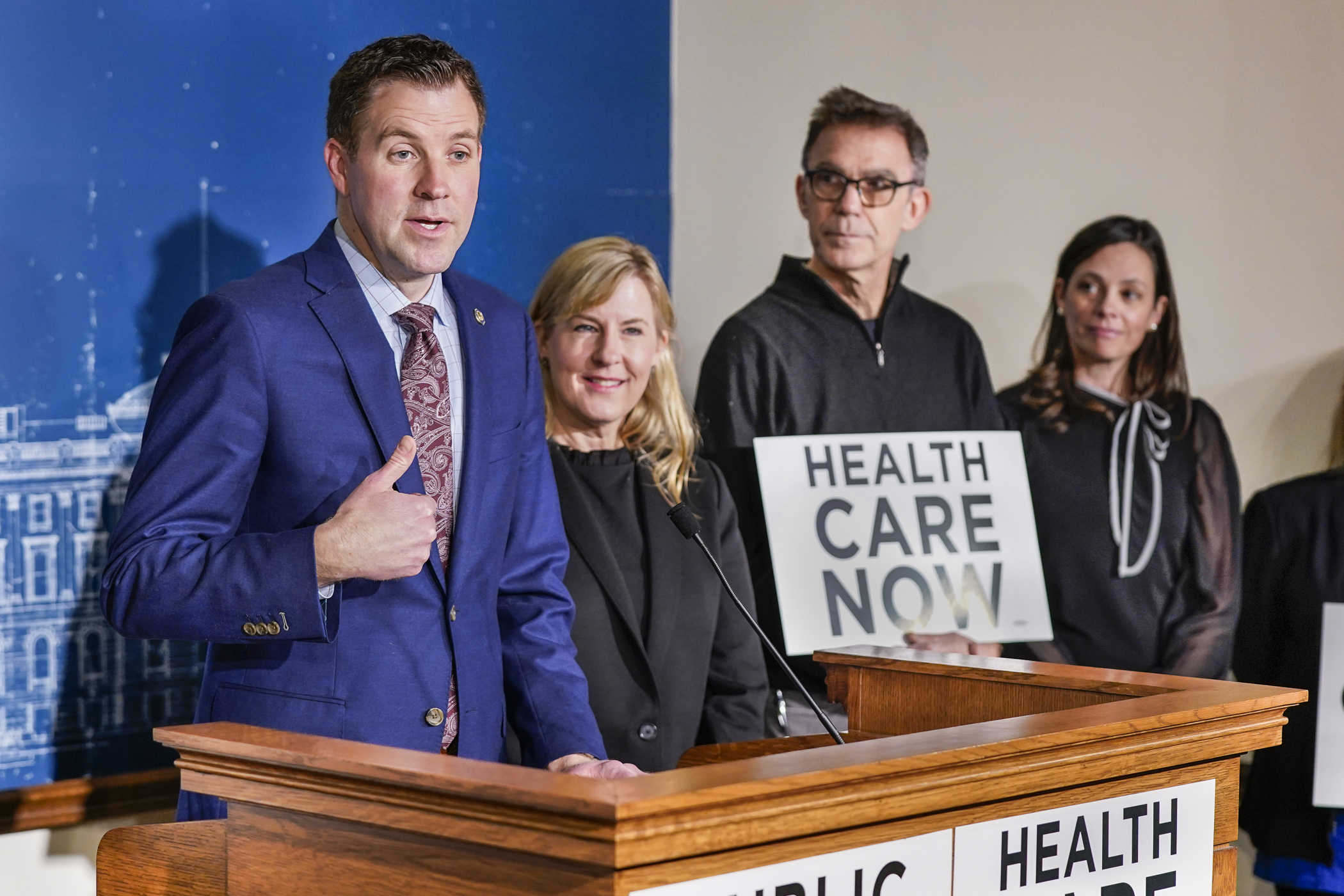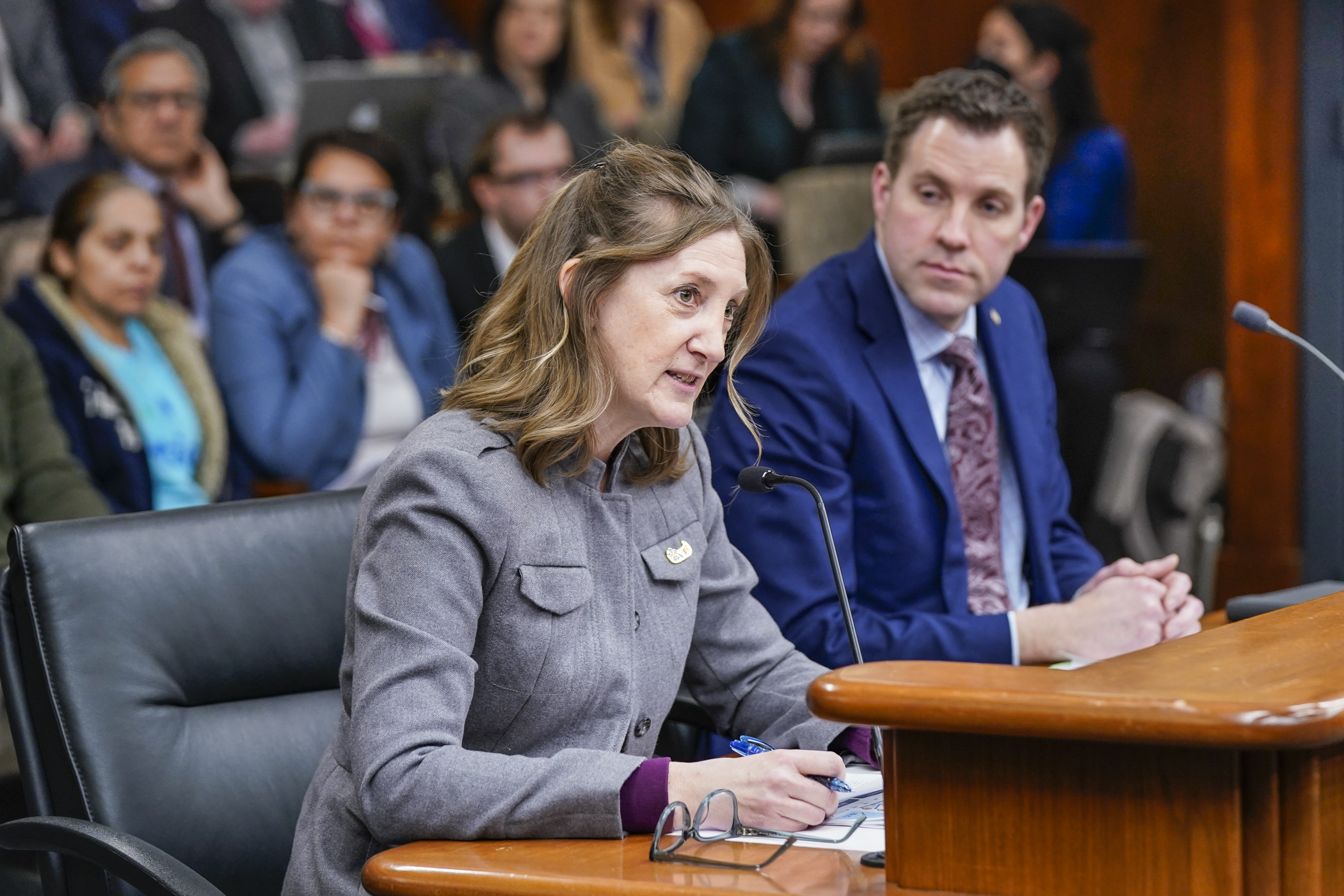DFL proposal would expand MinnesotaCare access to all, create public health insurance option

MinnesotaCare is a health care program for Minnesotans with low incomes. It is less expensive than private insurance because it’s partially subsidized by the government.
House Majority Leader Jamie Long (DFL-Mpls) says the program enjoys great public support because it delivers “simple, comprehensive, trusted coverage.”
And he’d like more Minnesotans eligible to receive it.
To that end, he sponsors a bill that would establish the MinnesotaCare “public option.”
It would let people with incomes greater than the MinnesotaCare income limit (200% of the federal poverty guidelines) enroll provided they meet all other eligibility criteria.
“In Minnesota, we believe that everyone deserves access to health care,” he said.
HF96 would expand subsidized MinnesotaCare coverage to Minnesotans struggling to afford high deductibles and small-business owners wanting to contribute to their employees’ coverage, Long said.
[MORE: Watch the House DFL press conference about the bill]
The House Commerce Finance and Policy Committee approved the bill Wednesday on a split-voice vote and sent it to the House Health Finance and Policy Committee.
Health care access and affordability has been a long-standing issue with small businesses, Long said, and this bill would help them in two ways.
It would establish a tax credit — equal to 50% of the employer’s qualified employee health care expenses — for the individual income and corporate franchise taxes for qualified employers. And the Department of Human Services would develop a small-employer public option to allow employees of businesses with fewer than 50 employees to receive employer contributions toward MinnesotaCare.
Additionally, undocumented noncitizens would be eligible for MinnesotaCare.
Testifiers for and against
Jennifer Schultz said the proposed expansions would reduce “job lock,” that she defined as people being reluctant to leave a job that provides health care benefits, thereby stymying entrepreneurial businesses ventures.
Schultz, a former representative who sponsored similar legislation in 2022, also said the bill could help address the state’s workforce shortage by attracting workers to the state knowing they would have affordable health care options.
Farmers also feel the pressure of “job lock” – but in a slightly different way, said Anne Schwagerl, vice president of the Minnesota Farmers Union.
Schwagerl, who farms with her husband in Big Stone County, knows many farmers considering giving up the career or taking a second job just to get health insurance benefits. Or they go without coverage, which could be devastating.
 Former Rep. Jennifer Schultz testifies before the House commerce panel Feb. 8 in support of HF96. Sponsored by House Majority Leader Jamie Long, right, the bill would create a public option for health insurance in Minnesota. (Photo by Catherine Davis)
Former Rep. Jennifer Schultz testifies before the House commerce panel Feb. 8 in support of HF96. Sponsored by House Majority Leader Jamie Long, right, the bill would create a public option for health insurance in Minnesota. (Photo by Catherine Davis)Family farmers disproportionally purchase health insurance on the private market, she said, meaning they are hit hard by high premiums and lack of choice between health plans in rural areas.
“We believe strongly that this proposal is a meaningful step forward to a future where no Minnesotan has to choose between farming, starting a small business, or getting the health care that they need,” she said.
The long-term effect of expanding MinnesotaCare to include a public option will lead to instability in the insurance market and drive up private health care premiums, said Bentley Graves, director of health care and transportation policy at the Minnesota Chamber of Commerce.
He said government-subsidized health care programs, such as Medicare, Medicaid, and MinnesotaCare, pay hospitals and doctors much less than commercial health insurance plans do for the medical services and procedures they provide.
In effect, Graves said, those higher payments from commercial payers subsidize government plans meaning if more people are in government programs, already high private health care premiums will become even higher.
That concern was echoed by Rep. Tim O'Driscoll (R-Sartell), who said rural hospitals already operate on very narrow margins and would struggle even more with the reimbursement disparity between private and public health care plans.
“Rural hospitals are barely hanging on right now,” O’Driscoll said, noting that if this legislation causes rural hospitals to close their doors, many Minnesotans would have no health care at all.
Related Articles
Search Session Daily
Advanced Search OptionsPriority Dailies
Speaker Emerita Melissa Hortman, husband killed in attack
By HPIS Staff House Speaker Emerita Melissa Hortman (DFL-Brooklyn Park) and her husband, Mark, were fatally shot in their home early Saturday morning.
Gov. Tim Walz announced the news dur...
House Speaker Emerita Melissa Hortman (DFL-Brooklyn Park) and her husband, Mark, were fatally shot in their home early Saturday morning.
Gov. Tim Walz announced the news dur...
Lawmakers deliver budget bills to governor's desk in one-day special session
By Mike Cook About that talk of needing all 21 hours left in a legislative day to complete a special session?
House members were more than up to the challenge Monday. Beginning at 10 a.m...
About that talk of needing all 21 hours left in a legislative day to complete a special session?
House members were more than up to the challenge Monday. Beginning at 10 a.m...